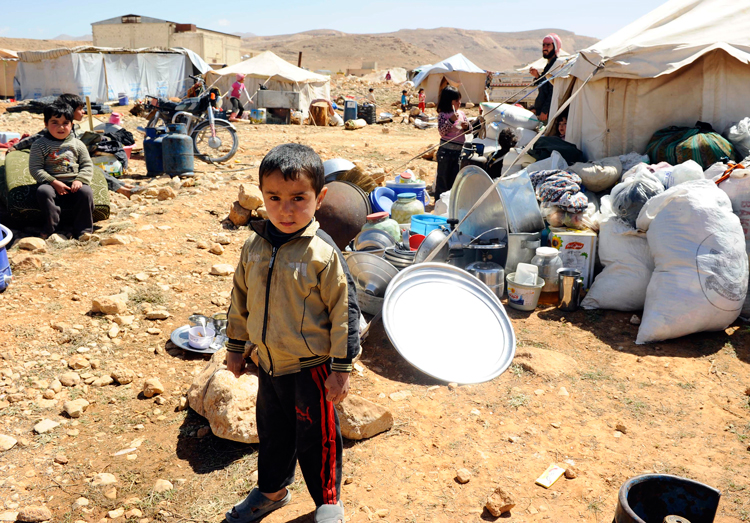President Donald Trump announced plans Dec. 19 to withdraw U.S. troops from Syria and cut by nearly half Washington’s forces in Afghanistan. The decision galvanized some in his administration, and pro-war liberal Democrats and Republicans alike, into calling for the troops to remain.
Trump had campaigned on and promised during the presidential election that he would pull U.S. troops out of these “never ending wars.” He tweeted Dec. 31, “Just doing what I said I was going to do.”
Such a move doesn’t mean the U.S. rulers aim to give up defense of their position in the Middle East and South Asia. They have a series of bases; some 50,000 troops; massive armories of missiles, bombs and artillery; hundreds of warplanes; and the Fifth Fleet all deployed there.
Trump told Fox News Dec. 31 that Washington would remain fully engaged in Syria and the region. “We have other bases in the general area,” he said. “In particular, we have one in Iraq.”
The U.S. rulers’ intervention in Syria followed the two wars they fought in Iraq and their 17-year-long war in Afghanistan. In each conflict they acted on the illusion that they had won the Cold War and could impose subservient governments wherever they chose. But Washington’s wars in Iraq furthered the breakup of the imperialist-imposed order in the Middle East. The U.S. rulers also failed to defeat the Taliban and extend the rule of the Afghan government across the country.
The devastating results of the Syrian civil war fall most heavily on working people. As does the efforts of the Iranian rulers to extend their counterrevolutionary reach by sending their military forces and proxy militias into the conflicts in Syria, Iraq and Yemen.
The Socialist Workers Party has long demanded the immediate withdrawal of all U.S. forces from Afghanistan, Syria and elsewhere around the Mideast. In a statement “Solidarity with the Working People of Syria,” published in the Militant in 2016, the party’s presidential candidate, Alyson Kennedy, said: “Syrian toilers need the space to mobilize in political action, to learn in struggle, to be transformed from victims into conscious actors in history. All the imperialist and capitalist forces intervening in Syria today are obstacles to this course. We oppose the U.S. rulers’ involvement in the war in Syria and Iraq and call for Washington, its allies and others — from London and Paris to Moscow, Ankara and Tehran — to withdraw their warplanes, ships and troops now.”
U.S. rulers’ role in Syria war
Washington relied on the Kurdish People’s Protection Units (YPG) to lead the ground fighting to drive Islamic State from its Syrian strongholds. The U.S. rulers were unwilling to pay the political price in deaths and injuries by deploying its own ground forces. Instead, they provided arms and air cover to the YPG and stationed their small troop deployment in areas of eastern Syria that the YPG controls. The Kurds are an oppressed people who have fought for their national rights against the rulers in Iran, Iraq, Turkey, as well as in Syria.
During Syria’s civil war the YPG carved out an autonomous Kurdish zone that the Syrian government vows to retake. Their territory lies on the border of the Kurdish-majority region in Turkey.
Ankara threatens war on Kurds
With Trump’s withdrawal announcement, the YPG feared it would be left to face attacks from the capitalist rulers in Turkey. The government of Turkish President Recep Tayyip Erdogan has massed troops and tanks on the border and pledged to invade and destroy the YPG, fearing its gains will inspire Kurds in Turkey to step up efforts to win autonomy there.
In the wake of the Trump administration’s announcement of plans to pull out, the Turkish government said it would hold off its threatened assault on the YPG. Around 300 Syrian government troops were deployed to the outskirts of Manbij in late December, after the YPG called on the Syrian government to defend the town from Ankara’s threatened assault. For now U.S.-led coalition jets and attack helicopters continue to fly over the area and the YPG-led Manbij Military Council controls the town.
The U.S. administration is pressing the Turkish regime to back off its invasion threats and take more responsibility for assuring “stability” in Syria. When Trump told Erdogan on the phone he intended to withdraw, he said, “It’s yours,” the Washington Post reported.
The 2,000 troops Washington says it will withdraw from Syria are not central to its drive against the Iranian rulers expanding military influence. Trump dispatched Secretary of State Mike Pompeo to meet with Israeli President Benjamin Netanyahu Jan. 1 to organize stepped-up collaboration in the region.
“The counter I[slamic] S[tate] campaign continues, our efforts to counter Iranian aggression continues, and our commitment to Middle East stability and the protection of Israel continues in the same way,” Pompeo told Netanyahu.
Days after the troop withdrawal announcement, the Israeli rulers Dec. 25 bombed an arms depot controlled by the Iranian Revolutionary Guard near Damascus, the Syrian capital.
And the U.S. rulers are having success in forcing their capitalist rivals to go along with their expanding sanctions on Iran, which have sharply affected the country’s oil exports. The subsequent rise in prices of basic necessities has hit working people there hard.
The president’s withdrawal announcement was opposed by forces within his own administration who disagree with his general course. Defense Secretary James Mattis resigned.
The announcement was also denounced by Republican Sen. Lindsey Graham, who claimed it was “a big gift” to Tehran and the Iranian rulers’ moves to expand their reach.
Trump placated some of his critics when he said the U.S. withdrawal would be done “slowly,” taking at least four months, to assure it is done in a “safe and orderly” manner. After meeting with Trump Dec. 30, Graham backtracked on his criticism.
Both the administration and its opponents who press for more direct military intervention seek to advance the predatory interests of the U.S. capitalist rulers.


